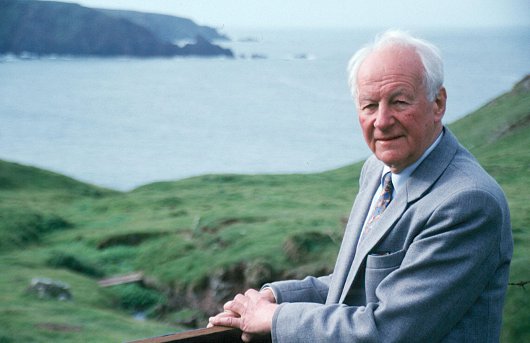Time to Rethink Our Attitude to Singleness
More and more of us are single. In the United Kingdom, over a third of the adult population of England and Wales are single, more than half of 25–44 year olds, and singleness is increasing in every age group with 50–64 year olds growing the fastest. Some embrace the single life with joy, others don’t, and both society and church can send mixed messages about it. It’s time to rethink our attitude to singleness. It is neither a curse to be pitied or a condition to be cured but a status with divine dignity. Here’s why.
Listen Now
Breakfast for One

I remember talking with a colleague when the conversation turned to the topic of singleness. “Well, that’s me,” John said, quieting his voice. “Forty-two years old and still unmarried.” There was a note of shame in his words.
I once stayed at a lovely old hotel with classic drapes and sweeping staircases. For breakfast, guests were assigned to large tables, and I ended up eating with a girl in her thirties. “This is a birthday present,” Anne said of her stay. I wished her a happy birthday, then asked if anyone was celebrating with her. “No,” she said, her face sullen. “I’m here alone.”
While many are content being single, others like John and Anne find it a source of sadness and even shame. I don’t think some of the messages we send as a society help.
You Complete Me. Really?
Those ‘Make Him Fall in Love With You’ magazine articles and ‘Get Married Quick’ TV shows can paint singleness as a condition to be cured. And then there’s the Jerry Maguire myth. You might remember the scene: Tom Cruise gazes at Renee Zellweger and says, “You complete me.” Echoing the Greek tale that each of us is a half who must find our ‘other half’ to be whole, it subtly tells John and Anne that without a partner they’re incomplete.
The fact is I talk to many married couples who still feel incomplete… because they haven’t been able to have children. And couples with one child who feel incomplete because they haven’t had a second. I believe there is a space within us that hungers to be filled, but no one can fill it but God.
A Pivot Point
My view of singleness changed forever when I realised the pressures Jesus faced in his life time. In his culture, marriage and children was expected of all, with eyebrows raised if you remained single. “Any man who has no wife is not a proper man,” wrote the first-century rabbi Eleazar. “He who is twenty years of age and is not married spends all his days in sin,” states Rabbi Huna in the Talmud. And yet Jesus never married or had children. For a Christian like me this is profound: When God visits the earth he comes as a single man, gracing the status with honour.
But that’s only the start. Jesus then presented singleness as a viable vocational choice “for the sake of the Kingdom of Heaven”. The apostle Paul followed suit, elevating singleness to a ‘gift’ he wished others would take up because of its unparalleled opportunity for devotion to God. Remember the Jewish context of these statements. They were radical.

Saint Thomas Aquinas described celibacy as ‘vacancy for God’—a state of being free, open, and available for God’s service. Henri Nouwen said celibate singles could play a prophetic role in society. As no human can complete us, God-focused singleness can remind the world that “relationship with God is the beginning, the source, and the goal of all human relationships.”
I’ve been married for twenty-three years, and gladly so. Jesus and Paul speak positively about marriage too—to protect it from decay. But as good as marriage can be, it should never be idolised. Marriage is not the cure for all loneliness. Singleness is not some valley to be endured until the pinnacle of marriage is reached. Singleness can be a calling, a gift, and a powerful witness to the world.
So raise your voice loud, John.
Anne, lift your head.
Your singleness isn’t a condition to be a cured, but a status of divine dignity.
More
Reflect with Sheridan has 70 stories and reflections like this in gift book form





Jean Shepherd
Thanks for this – it’s the first time I’ve thought about the pressures Jesus would have been under as a single man
Sheridan Voysey
And we almost completely forget his own inner desires too. How much did Jesus long to marry? Being fully divine doesn’t nullify his being fully human, which may have included natural longings for intimacy and life-sharing.
Tania Harris
I love the way you tackle the tough issues so thoughtfully Sheridan! For me, my longterm singleness has neither been a gift or a calling. For me it’s been more like a “thorn in the flesh” – it often aches (particularly when I can’t afford rent as a single in Sydney!), but God’s grace is sufficient. I take comfort in God’s words in Genesis where the one thing in creation that wasn’t good was that man was alone. His solution to that aloneness was marriage. I believe the desire for intimate relationship is built into what it means to be human and reflects the image of God – who as a trinity knows and enjoys reciprocal love.
And when I do get married, I pray that my partner will encourage me to serve God more not less. As singles we are complete and contentment in every situation is always possible in Christ even while the loneliness is real. Life with Jesus is beautifully abundant no matter our marital status.
Anonymous
I appreciate your thoughts, but my situation feels like a bereavement, without the closure. When one has been in a Christian marriage for over 40 years and suddenly the husband has a crisis of faith, love, confidence and finds someone else on the internet, all the dreams of growing old together are trampled on and there is nothing quite like the loneliness of rejection. I cant even mourn him. I know I am loved by God and it hasn’t dented my faith in Him, but I’m not sure I will ever recover from the loss.